When Teresa Regula arrived at Auschwitz at 16 yearsthe first real pain he felt was the burning in your ears.
“They shaved us until our skin was exposed.and it was a scorching day, August 4… That was the first real pain I experienced,” shared the Jewish survivor of 96 yearsspeaking from his home in Krakow, in an interview with Reuters ahead of the 80th anniversary of the liberation of Auschwitz January 27, 1945 by Soviet troops.
Their memories illuminate the suffering of the approximately 1.3 million people who were sent to the Nazi extermination camp established in occupied Poland as part of the “Final Solution” of Adolf Hitler to annihilate the European Jews. Most of the prisoners at Auschwitz perished there.
this monday January 27when 80 years have passed since the liberation of the largest Nazi concentration and extermination camp, Auschwitz-Birkenau, the museum that pays tribute to the victims will hold an event in which only the Polish president will speak, Andrej Dudaand the 50 survivors to this genocide.
Regula is one of these survivors, who GestapoHitler’s secret police, forcibly took his mother from her home in Krakow in 1944 to the Plaszow camp, where his mother was executed. Teresa was then transferred to Auschwitz and assigned the number 22011.
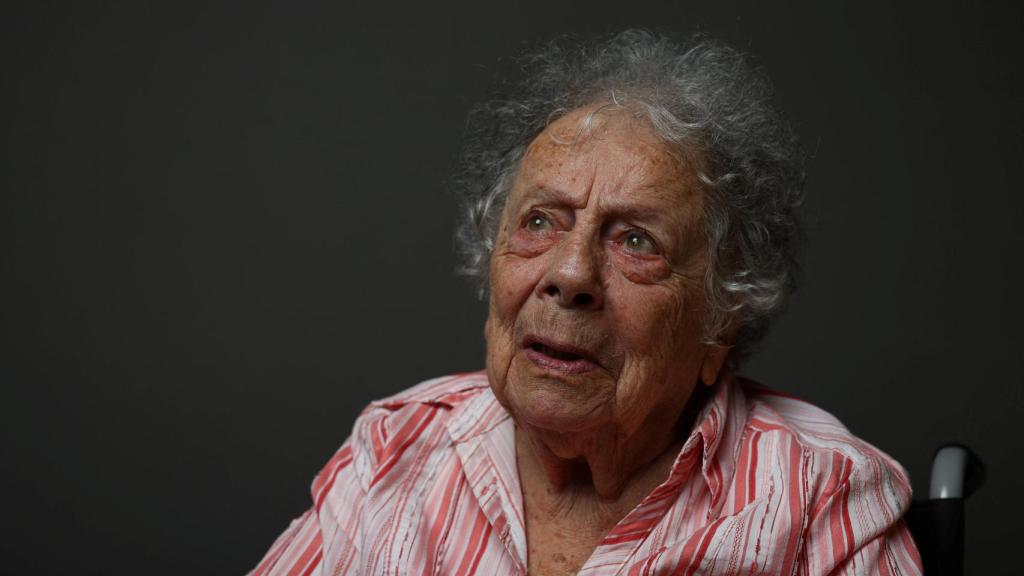
Teresa Regula, a 96-year-old Auschwitz-Birkenau survivor and retired sociologist, reacts during a photo shoot for Reuters ahead of the 80th anniversary of the liberation of the Nazi German concentration and extermination camp Auschwitz, in Krakow, Poland, in January 2025.
REUTERS
Before a healthy girl, contracted chickenpox, measles and scarlet fever in the field.
What kept her alive was the idea that “my fatherwho I always believed could do anything, would come to get me out of there.” Later she learned that he had been killed by mistake by Russian forces in liberating the Gross Rosen concentration camp in what was then East Germany.
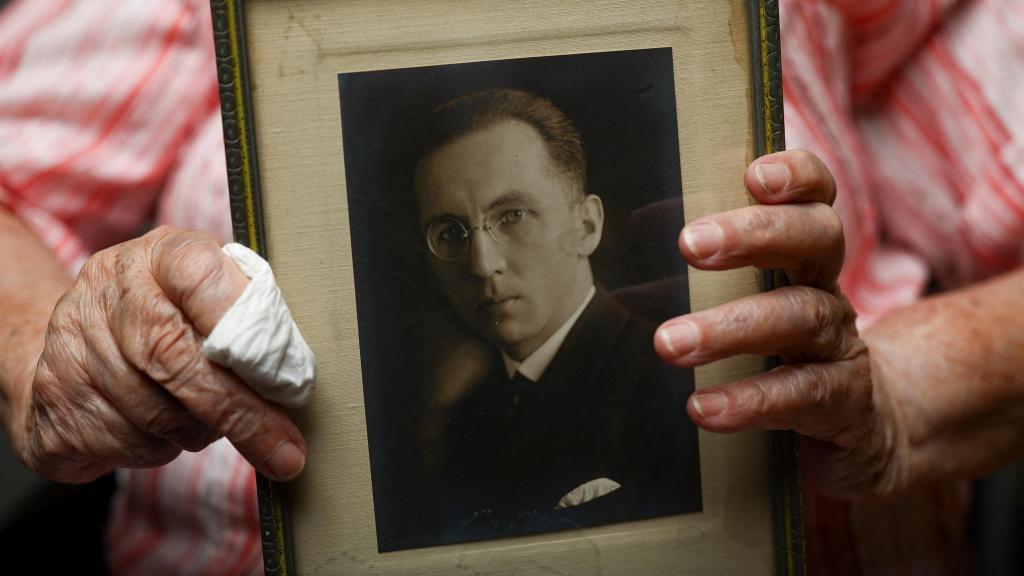
Regula holds a photograph of her father Jan Regula
REUTERS
“When I came back (from the field), I thought: ‘I will never have children, ever’. “If they had to go through even a fraction of what I went through, I wouldn’t want that,” said the retired sociologist.
Married but childless, Teresa repressed all memories of her time in Auschwitz for decades. “Now everything comes back to me”said.
“I look at the youth and see a bleak future”
Janina Iwanskaa Polish Catholic woman sent to Auschwitz around the same time as Teresa in 1944, has also remained childless.
“I won’t live much longer. But when I look at the youth and the little ones… what will be their future? I see it gloomy“said the 94-year-old woman, citing “hate” and divisions in modern society and predicting another war.
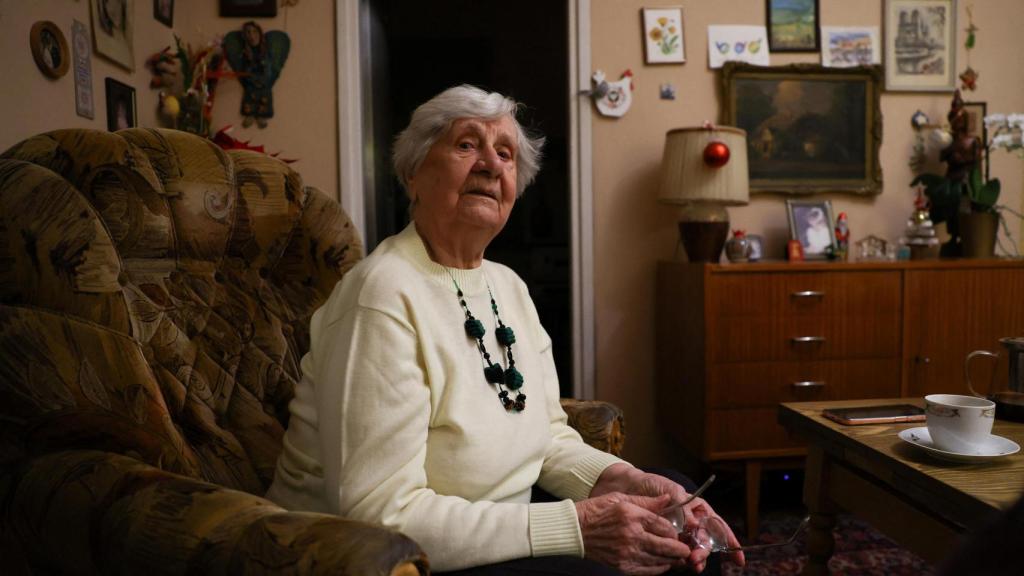
Janina Iwanska, 94, a retired pharmacist and Auschwitz-Birkenau survivor, speaks at her home, ahead of the 80th anniversary of the liberation of the Nazi German concentration and extermination camp Auschwitz, in Warsaw, Poland.
REUTERS
Janina, transported to Auschwitz from Warsaw on a freight train, recalled leaving in an environment filled with the “smell of burning bodies.” In the field, took care of the children on the block where he lived, earning rewards like hot milk soup.
“The children were treated differently; they didn’t have to work. They just had to wait patiently, either for their mothers or for the end of the war“he commented.
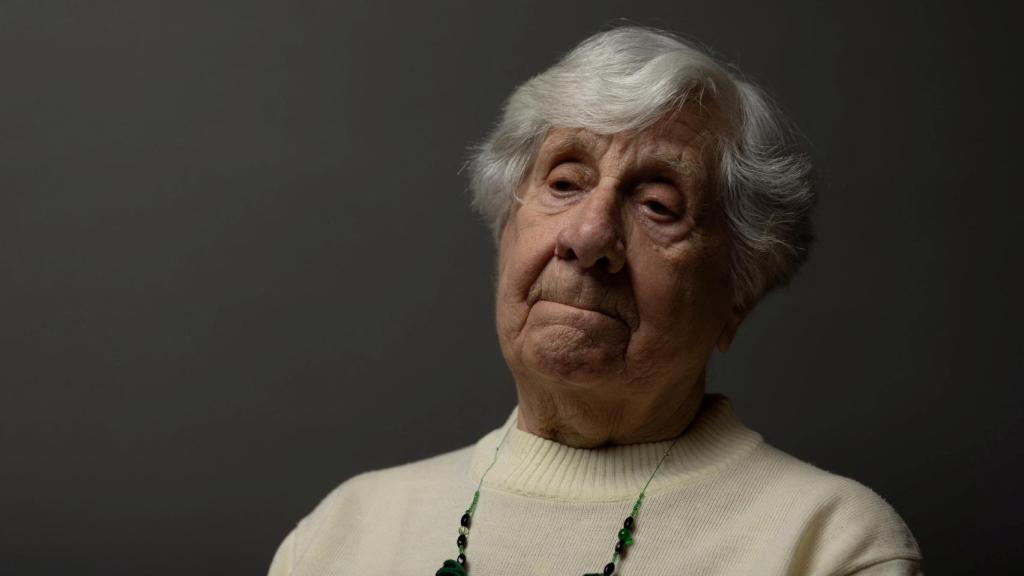
Auschwitz-Birkenau survivor Janina Iwanska, 94 years old.
REUTERS
Janina did not witness the liberation of Auschwitz because It was evacuated days before by the Germans. Finally, she was liberated by US forces on May 2 from the concentration camp of Ravensbrück for women in northern Germany.
On Monday, the retired pharmacist will return to Auschwitz once again to share her story before an audience that will include Britain’s King Charles, French President Emmanuel Macron and numerous other heads of state and government.
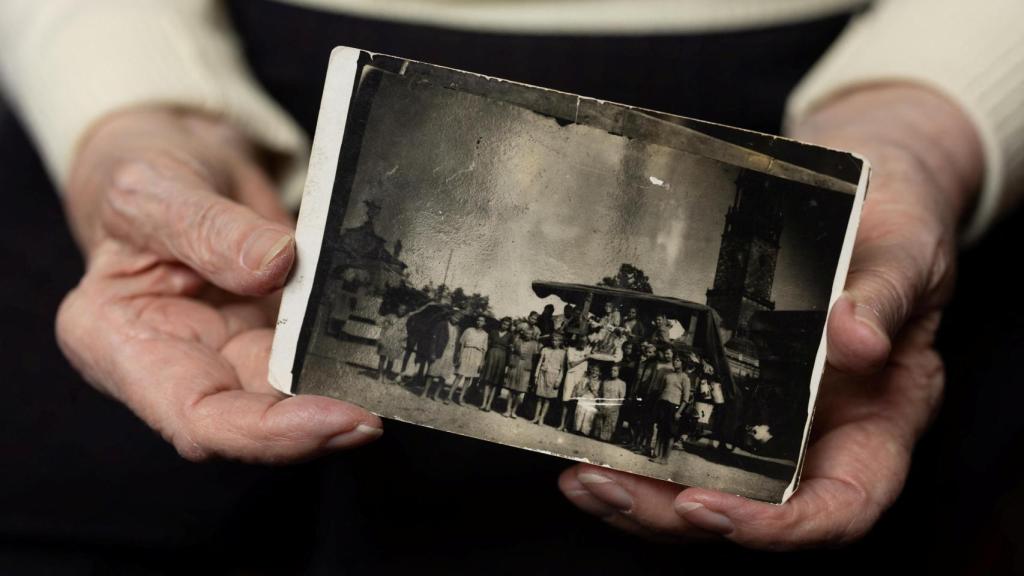
Iwanka holds an undated photograph of his way back to Poland during a photo shoot for Reuters ahead of the 80th anniversary of the liberation of the Nazi German concentration and extermination camp Auschwitz
REUTERS
The commemorative event in which 59 delegations led by heads of State, Government, ministers and other authorities will participate, including the Kings of Spain, Philip VI y Letizia Ortiz.
On the anniversary, those responsible for the museum, in charge of preserve the memory of the Holocaust and the atrocities of the Second World War, they want to give prominence to the 50 survivors of the extermination camp which are added to the tributes planned for a day in which only one politician will speak, the Polish president.
Only the 50 survivors will speak
These people with their heartbreaking life stories will be among the 50 survivors who will speak at the memorial event this Monday. In it, for the first time since the liberation anniversaries are celebrated, there will be no speeches by political leaders, only those of the survivorswhose testimonies are increasingly scarce due to the passage of time.
“We want to focus on the last survivors among us and their story, your pain, are trauma and his way of setting moral obligations for the present”, Piotr Cywiński, director of the Auschwitz-Birkenau Museum.
As Michael Bornstein, one of the survivors, acknowledges, it is very possible that such a large number of people who passed through the camp will never be reunited and, although “It won’t be easy to return to Auschwitzthis commemoration will be the last of its kind and we will be there.”
Presence of world leaders
More than fifty countries and international organizations will attend the commemorative events on Monday, and along with the kings of Spain, the kings and queens have also confirmed their attendance. monarchs of the United KingdomBelgium, the Netherlands, Denmark and Sweden, as well as the presidents of Italy, France, Germany, Austria y Poland.
From the United States, the president Donald Trump He has entrusted the responsibility of representing his country to Steve Witkoff, his administration’s envoy to the Middle East, and Howard Lutnick, Secretary of Commerce.
In addition, senior representatives of the European Commissionhe European Parliamentthe European Council, the Council of Europe, the I’LL TAKEthe United Nations, UNESCO and the Sovereign Order of Malta.
The commemoration has also been involved in some controversy due to speculation about possible assistance of the Israeli Prime Minister, Benjamin Netanyahu.
The International Criminal Court issued last year an arrest warrant against Netanyahu for war crimes and crimes against humanitybut the Polish Prime Minister, conservative Donald Tuskconfirmed that any Israeli politician You will be able to attend the ceremony without fear of arrest.
The Israeli Government announced that it will be represented by its Minister of Education, Yoav Kish.
No delegation from the Russian Federation has been invited, due to the Russian war of aggression against Ukraine.
The legacy of Auschwitz
As a reminder of the suffering and absence of the victims of Auschwitz-Birkenau, a one of the freight cars that were used to transport prisoners in inhumane conditions that were only the prelude to greater suffering.
For many of the people who arrived at Auschwitz, the trip in these wagons was the last of their lives, because upon arriving at the camp they were selected for perform forced labor until death or to be taken directly to the gas chambers.
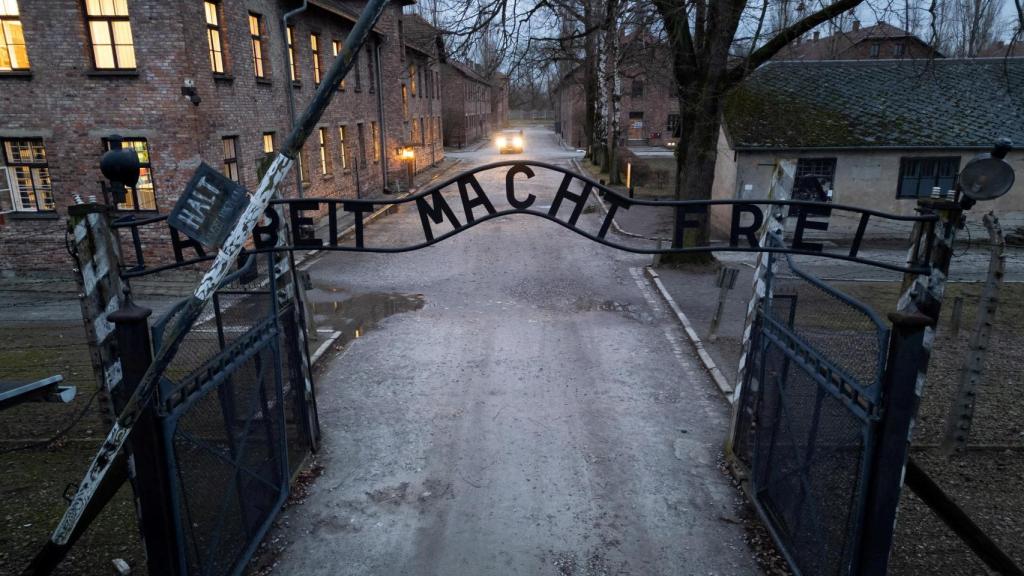
Entrance gate to Auschwitz
REUTERS
Most of the prisoners especially the children, women and elderlydied on their first day in Auschwitz.
The Nazi camp of Auschwitz-Birkenau, the largest of those built by Germany in World War II, was established in 1940initially as a Polish prison camp, but soon expanded into a complex of facilities dedicated to systematically exterminate human beings already industrial scale.
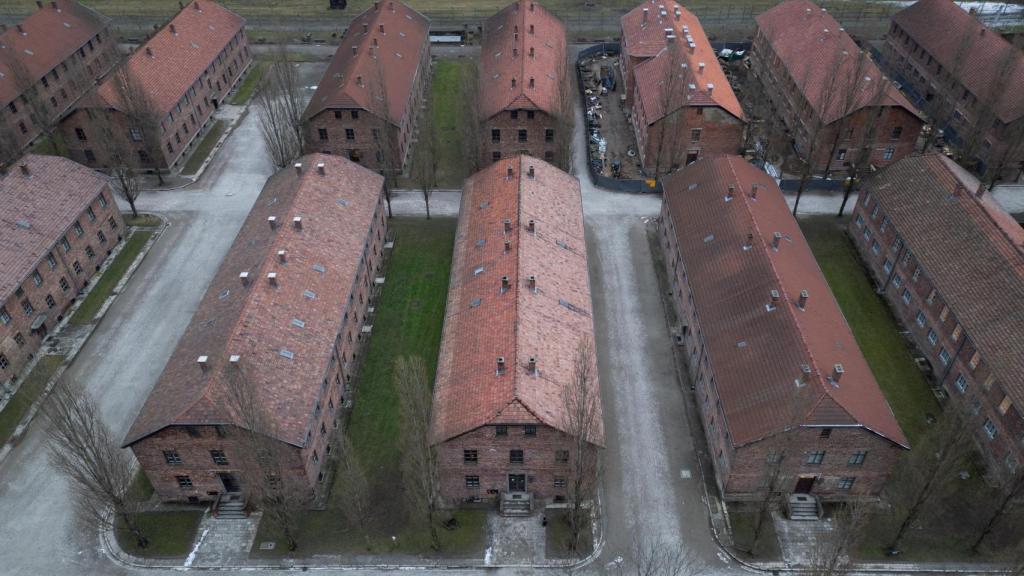
Aerial image of Auschwitz
REUTERS
It is estimated that at least 1.1 million people died at Auschwitzmost of them Jews, but they were also murdered polish, Roma, soviet prisoners of war and people of other nationalities.
He January 27, 1945soviet troops they liberated the field and they rescued some 7,000 survivors who had witnessed how those responsible for the camp had tried to destroy all evidence of their crimes before fleeing.
In 2005, the United Nations designated that date as International Holocaust Memorial Day.

